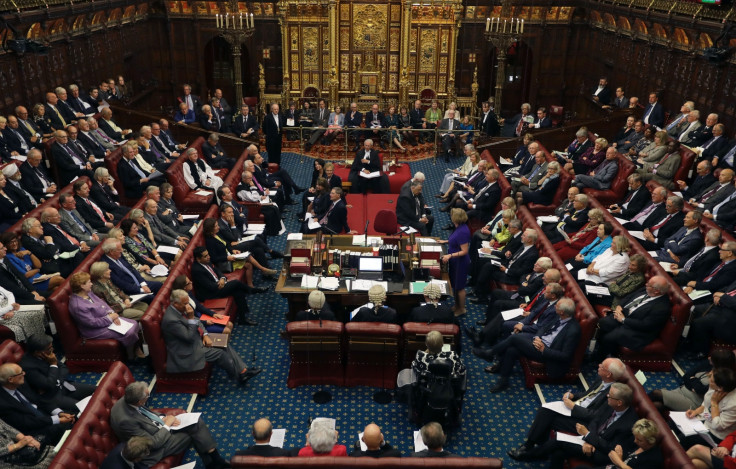115 'couch potato' Lords who did not debate last year claim £1.2m in taxpayers' cash
The peers get a £300 daily allowance.

Figures show that 115 peers who did not speak during debates in the UK Parliament's upper house were paid £1.2m in expenses while a further 277 who spoke five times or fewer received £4m.
A study of speaking and expenses records by the Electoral Reform Society (ERS) showed how 394 peers who contributed to debates 10 times or fewer paid £7.3m and more than half got more than the average UK salary of £22,226.25. Peers are paid a daily allowance of £300.
Tory peer Baroness Flather claimed £37,932.00 in expenses for 2016/17 but did not vote once.
Meanwhile, Lord Laird claimed £48,279 and only voted twice; Lord Paul got £38,100 and voted seven times; while Baroness Afshar claimed £34,966 and voted only three times, the Mirror reported.
ERS chief executive Darren Hughes said: "There appears to be a growing something for nothing culture in our upper house, with tidy sums being claimed by those who barely contribute.
"And there are a worrying number of couch-potato peers and lobby fodder lords. It's unacceptable that peers can claim thousands without even speaking or voting in the House and it highlights the reality that there is no accountability for peers."
Labour MP David Hanson told the paper that it was wrong that someone is "given the right to pass and amend laws and question the Government by accident of birth.
"We need people of merit in our legislature, not those who happen to be the great grandson of an earl," he said.
Lords' defence
Lord Paul defended the expenses that peers received saying that it was not about speaking or voting only.
"There's a lot more contribution people have and the House of Lords are paying on the basis of attendance. I participate. I don't understand what the fuss is about."
Lord Laird, 73, said his heart condition means he is often unable to get to the chamber in time to vote and that many of the issues are not relevant to Northern Ireland.
He said he is the largest supplier of written questions, having supplied about 14,000 in 18 years. "People have a right to ask about the money, but I work very hard for it," he said.
Baroness Afshar said her health is "rather precarious" and that since voting is often done late in the evening "I tend to be on the train to York. However when I am well enough I have a good record of attendance."
© Copyright IBTimes 2025. All rights reserved.






















